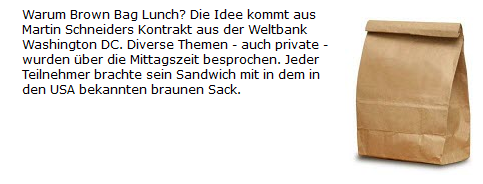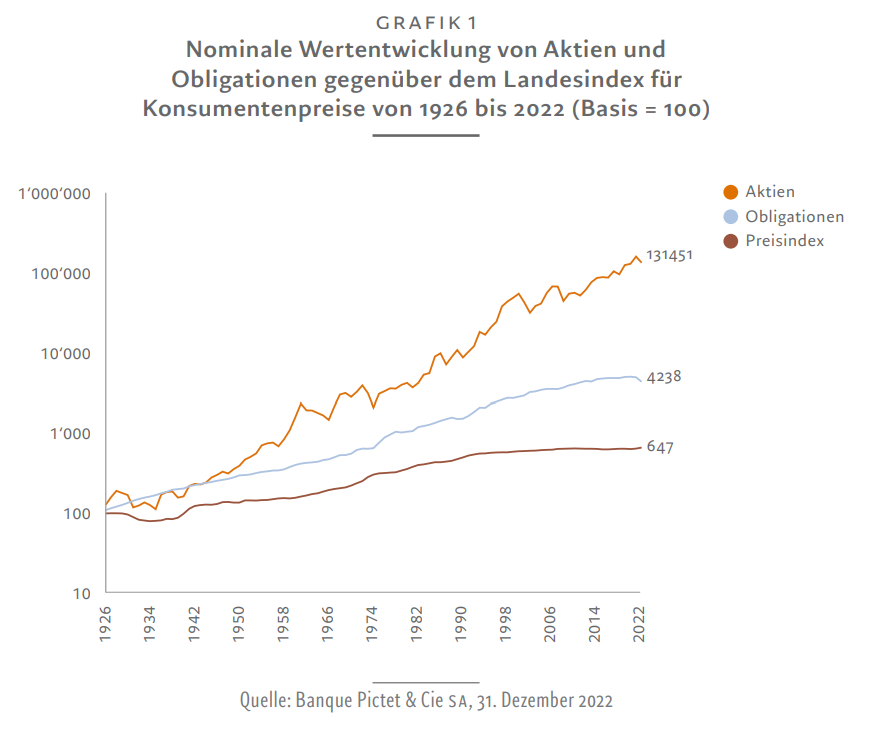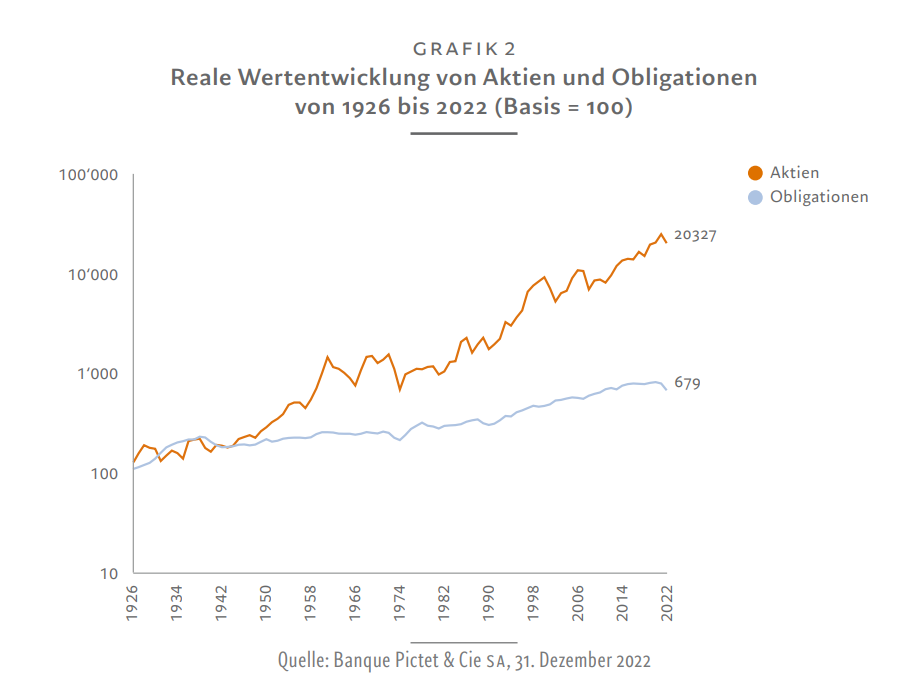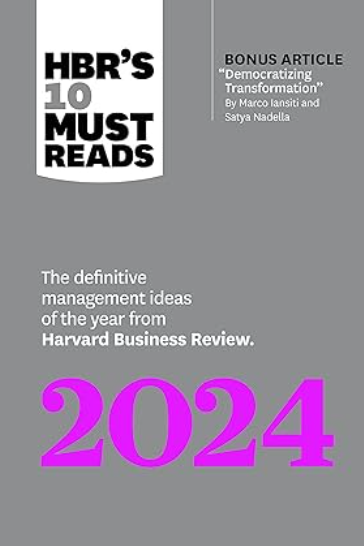TOMATO CATCH-UP - Newsletter Issue 264 - January 2024
Your monthly resource on working capital, process optimization, and issues related to the world of corporate treasurers, IT professionals, and bankers!
This newsletter is bilingual, English or German, depending on the source.
Introduction
We are aware of the display problems on the Iphone at the end of the newsletter and are working on a solution.
Every year in January, we look through our newsletter statistics to see which articles in Tomato Catch-Up were read the most. In 2023, these articles topped the list of most-read articles, see 1) below
We've been sharing Forbes' list of New Year's resolutions for executives for several years now. Here are the 9 New Year's resolutions for executives compiled by Forbes for 2024
- Be a ‘hold-the-door hero’ and set an example for your team;
- Be a strategic thinker: pivot rapidly and turn uncertainties into opportunities;
- Be a loving leader: create an environment where everyone prospers and belongs;
- Breathe through stressful times: practice breathing exercises when you are feeling overwhelmed;
- Inject some fun into training sessions, especially when delivering training via screens;
- Accept your ‘bad boss’ traits; in reality, all leaders have a mix of traits;
- Take time to look at the evidence and use the most reliable information;
- Help more, by helping less: challenge and encourage your team do the thinking;
- Combine work with travel: embracing travel could help leaders build happier teams.
This month’s Catch-Up includes topics such as Basel III, Investments in Swiss Equities, Dynamic Pricing, Online Encryption & Quantum Computing, Smartphone’ Successor, Management Ideas for 2024, and more.
Remember that for any challenge related to your financial issues, you can ask Martin Schneider for a discussion that will clarify it. Contact Martin via email or call +41 44 814 2001.
- The Most Read Articles in Our Newsletter in 2023
- Tomato-BBL 16.01.2024 Baden-ZH und weitere BBLs – Ihre Wünsche?
- Was ist die Funktion des Treasurers und ein spannender Arbeitsplatz in Meran
- Regulatorische Änderungen in Basel III ab 2025
- Banque Pictet Studie in Schweizer Aktien seit 1926
- Projection: The U.S. Dollar Will Be Replaced in International Trade
- Dynamic Pricing: Bedeutung und Folgen
- Checkliste zum Schutz vor Cyberattacken
- Book Tip - HBR's 10 Must Reads 2024: The Definitive Management Ideas of the Year
- Termine & Events
- From the Desk of Tomato
1. The Most Read Articles in Our Newsletter in 2023
Every year in January, we look through our newsletter statistics to see which articles in Tomato Catch-Up were read the most. In 2023, these articles topped the list of most-read articles:
- January: Target2: RTGS payments transition to ISO 20022
- February: Roadmap Swiss Payments - Weitere Entwicklungen
- March: What is EBICS - a Boring or Useful Reading?
- April: How will an RfP really serve you?
- May: Digital Nomads and Remote Work – Interactive Map by KPMG
- June: Zahlungsverkehr via SAP-BCM-MBC - wie geht das?
- July - August: Workation: Urlaub vom Arbeitsplatz - nicht von der Arbeit
- September: Status Instant Real Time Payment in Schweiz und USA
- October: Webshops, Prozesse und Kreditkarten
- November: Swiss GAAP FER - Konzernrechnung 2024
- December: In Treasury und Zahlungsverkehr bleiben SAP-Module führend
2. Tomato-BBL 16.01.2024 Baden-ZH und weitere BBLs – Ihre Wünsche?
Vielen Dank an die Treasury Kolleginnen und Kollegen, die Vorschläge für BBL-Sitzungen beigesteuert haben.
Das erste "Tomato Brown Bag Lunch" findet am Dienstag, 16. Januar 2024 beim Gastgeber AXPO in Baden statt. Wir freuen uns auf alle Teilnehmenden der Region Zürich, Aargau und Umgebung. Die maximale Teilnehmerzahl ist circa 8 Personen aus den Bereichen Treasury Controlling.
Haben Sie Interesse von 11.30-14.00 Uhr nach Baden zu kommen? Die weiteren Details unter https://www.tomato.ch/brown_bag_lunch.html
Weitere BBL sind geplant in Regionen der Schweiz, in Süddeutschland und Vorarlberg für Q1 und Q2 / 2024. Anmeldungen und wer Gastgeber seiner Region sein möchte, meldet sich bitte bei Martin Schneider oder +41 44 814 2001. Besten Dank.

3. Was ist die Funktion des Treasurers und ein spannender Arbeitsplatz in Meran
Der Verband Deutscher Treasurer (VDT) hat ein Positionspapier erarbeitet, das den Begriff und die Funktion des Corporate Treasury definiert. Der VDT vertritt die Meinung, dass eine solche Definition notwendig ist, um ein klares, eindeutiges und berufsspezifisches Bild der Treasury-Abteilung im Unternehmen mit den ihr zugewiesenen Aufgaben zu schaffen. Sie dient auch der Abgrenzung zu anderen Bereichen des Unternehmens, insbesondere dem Rechnungswesen und dem Controlling. Die Definition ist auf alle Unternehmensgrössen oder Branchen ausgerichtet und soll einen Einblick in die Aufgaben der Treasury geben.
Themen:
- Betriebliche Einordnung der Treasury-Funktion
- Zentrale Treasury-Aufgabe
- Kernfunktionen des Treasury
- Cash & Liquidity Management
- Finanzierung & Financial Asset Management
- Financial Risk Management
- Treasury Framework
- Treasury-Organisation
- Treasury & IT Investor Relationship (IR)/Communication
Details bei VDT in PDF 24 Seiten
Do you prefer English?
The Association of German Treasurers (VDT) has prepared a position paper that defines the term and function of Corporate Treasury. The VDT suggests that such a definition is necessary in order to create a clear, unambiguous and profession-specific picture of the treasury department in the company with the tasks assigned to it. It also serves to differentiate it from other areas of the company, in particular accounting and controlling.
The above checklist is similar to the list on our website in Tomato Publications
***
Ein befreundeter CFO und wir von Tomato AG suchen einen deutschsprachigen Treasurer für Meran im Süd-Tirol. Kennen Sie Kolleg/innen, die in dieser deutschsprachig Europäischen Region tätig werden möchten? Wenden Sie sich an Martin Schneider oder +41 44 814 2001
4. Regulatorische Änderungen in Basel III ab 2025
Der Bundesrat hat an seiner Sitzung vom 29. November 2023 die Änderung der Eigenmittelverordnung (ERV) für Banken genehmigt. Zudem hat der Basler Ausschuss für Bankenaufsicht (BCBS) die endgültigen Basel-III-Regeln auf internationaler Ebene verabschiedet. Der aktualisierte CAO wird am 1. Januar 2025 in Kraft treten.
Bei der Umsetzung der Basel III-Standards steht im Vordergrund, dass risikoreichere Bereiche des Bankgeschäfts mit mehr und risikoärmere Bereiche mit weniger Kapital unterlegt werden müssen. Es wird erwartet, dass sich die Kapitalanforderungen insgesamt nicht wesentlich ändern werden. Allerdings dürften die Kapitalanforderungen für UBS steigen, während die Änderung des CAO den Spielraum für interne Modelle zur Bestimmung der Kapitalanforderungen einschränken wird.
Einzelheiten finden Sie im Presseportal der Schweizer Regierung in Deutsch, Französisch, Italienisch, Rätoromanisch und Englisch.
5. Banque Pictet Studie in Schweizer Aktien seit 1926
Basierend auf der Pictet Langzeit Studie: Seit 1926 hätte niemand, der in Schweizer Aktien mit einem Anlagezeitraum von mindestens 14 Jahren investiert hatte, einen Verlust auf seine ursprüngliche Anlage erlitten.
Im Januar 1988 veröffentlichte Pictet eine Langzeitstudie, in der die Performance der Schweizer Aktien seit Ende 1925 mit derjenigen der Frankenobligationen verglichen wurde. In dieser Zeitspanne gab es nur 14 schlechte Jahre.
Der durchschnittliche, jährliche (annualisierte) Wertzuwachs einer Anlage am Schweizer Aktienmarkt betrug zwischen 1926 und 2020 rund 7,8%. Die Analysen von Pictet zeigen, dass ein Anleger, der Anfang 1926 1'000 CHF in Aktien investiert hatte, diesen Betrag bis Ende 2020 auf 1'276'000 CHF erhöht hätte. Bei einer durchschnittlichen Kostenquote von 0,5% pro Jahr wären in den gleichen 95 Jahren Kosten von rund 462'000 CHF angefallen, was einen Nettogewinn von 814'000 CHF ergibt.
Pictet rät Anlegern, sich auf eine langfristige, solide und nachhaltige Anlagestrategie und deren Umsetzung zu konzentrieren. Allzu oft wird diese äusserst wichtige Frage zugunsten von nur vermeintlich wichtigen Themen (Kosten der Vermögensverwaltung; Kosten der Beratung; Kosten der Analyse) in den Hintergrund gedrängt.
Lesen Sie weiter bei InvestTrends oder lesen Sie die gesamte Pictet-Studie (6 Seiten + 5 Seiten Impressum) in fünf Sprachen; sie wurde erstmals 1988 und dann erneut 1998 veröffentlicht. Ab 1998 wird sie jährlich erneuert.
Details der kostenfreien Studie bei Pictet PDF in 11 Seiten In Deutsch, in Français,in Italiano, in English
Do you prefer English:
In January 1988, Pictet published its first long-term study comparing the performance of Swiss equities with that of bonds denominated in Swiss francs since the end of 1925 until 2022. Analysts update the data yearly and present the latest updated tables and charts.
Among other things, the analysis of historical returns confirms that equities remain the investment of choice over the long term, offering superior returns to Swiss government bonds in return for a certain risk tolerance.
In the expert commentary, in addition to further conclusions on the right investment strategy for long-term investors, you will find a graphical presentation of the results using the Pictet yield triangle (pdf)


6. Projection: The U.S. Dollar Will Be Replaced in International Trade
One of the claims made in the Time article Shock Events to the World That Are Already in Sight is that "the U.S. dollar is going to be replaced in international trade".
Although it is unlikely that the dollar will be replaced as the global reserve currency, its importance in international trade is clearly under attack.
Maha Hosain Aziz, author of the report, explains: Prior to the COVID-19 pandemic, there were repeated discussions about a new currency proposed by the intergovernmental organization BRICS and calls from China to use its own currency for more trade. But the response has been limited.
In the post-pandemic world, this sentiment has resurfaced with a vengeance. The article lists several countries that have already moved away from the dollar, as well as specific industries that are looking beyond the dollar.
7. Dynamic Pricing: Bedeutung und Folgen
Um die Preisdynamik im Schweizer Online-Handel zu untersuchen, hat ein Team von der Universität St. Gallen die Preise von 1200 Produkten von 299 Händlern 50 Tage lang beobachtet. Die Autoren identifizierten vier dynamische Preisstrategien und massen, wie die dynamische Preisgestaltung das Preis-Leistungs-Verhältnis der Händler beeinflusst.
Dynamische Preisgestaltung (flexible Preisgestaltung auf der Grundlage der aktuellen Marktnachfrage) ist eine gängige Praxis in den Schweizer Bergen.
Das ständige Auf und Ab der Preise führt dazu, dass manche Kunden nur noch kaufen, wenn sie es für ein Schnäppchen halten. Fühlen sich die Kunden jedoch manipuliert, werden sie sich schnell abwenden.
Laut Christian Kluge, CEO von Smart Pricer, müssen drei Faktoren erfüllt sein, damit dynamische Preise sinnvoll sind:
- Stark schwankende Nachfrage;
- Das Objekt muss auslaufen können;
- Knappheit.
Die Unternehmen wollen frühzeitige Buchungen, da die Kenntnis des Kundenvolumens ihre Planung erleichtert.
Das Beispiel von Zermatt (siehe Grafik) zeigt, wie es funktioniert.

Weiterlesen im NZZ 30 freie Artikel monatlich mit Anmeldung. Fragen Sie allenfalls den Bericht bei Tomato nach.
Do you prefer in English?
Dynamic pricing is a common practice in Swiss resorts. The constant ups and downs of prices mean that some customers only buy when they think it's a bargain. Also, if customers feel manipulated, they will quickly disappear. The example of Zermatt (see graphic above) shows how dynamic pricing works.
The study is available at Leibniz Informationszentrum in Corporation with Universität St.Gallen, PDF 11 pages
8. Checkliste zum Schutz vor Cyberattacken
Bericht vom Ratgeber der IHK Akademie München und Oberbayern
Mit Prävention können Sie Ihr Unternehmen davor bewahren, dass Hacker tief in Ihre Netzwerke vordringen, Daten stehlen und verschlüsseln. Eine Checkliste, erarbeitet vom Bayerischen Landesamt für Datenschutzaufsicht BayLDA, unterstützt bei Schutzmaßnahmen.
Inhalt
- Tipp 1: Netzwerksegmentierung umsetzen
- Tipp 2: PowerShell begrenzen
- Tipp 3: Programmausführung begrenzen
- Tipp 4: Fremde Office-Macros unterbinden
- Tipp 5: Administrative Passwörter bei Clients variieren
- Tipp 6: Internetübergang protokollieren und filtern
- Tipp 7: Air-Gap-Backups einsetzen
- Tipp 8: Netzwerkkomponenten up-to-date halten
A checklist drawn up by the Bavarian State Office for Data Protection Supervision (BayLDA) provides protective measures to avoid cyber-attacks.
9. Book Tip - HBR's 10 Must Reads 2024: The Definitive Management Ideas of the Year
In order to keep you informed about the most innovative and significant ideas influencing business today, Harvard Business Review has examined the concepts, insights, and best practices from the previous year. Featuring writers ranging from Lynda Gratton to Satya Nadella and business cases from Nestlé to TikTok, this book puts the most significant and up-to-date management discussions at your fingertips.
With the help of this book, you will be motivated to:
- Completely rethink the role that managers play in your company;
- Blend your ESG objectives into your core business model;
- Distinguish between the hype and the reality of Web3 and find business opportunities;
- Handle conflict and welcome cross-generational learning;
- Recognize and develop the soft skills that the C-suite needs;
- Encourage all staff members to gain the skills necessary for digital transformation.

10. Termine & Events
- Feb. 14 – 15, 2024: Open Banking & CX Transformation Forum, Berlin, Germany
- Feb. 26, 2024: ACT Treasury Briefing Saudi Arabia, Riyadh, KSA
- Feb. 26 – 28, 2024: Identity & Payments Summit by Secure Technology Alliance, Tucson, USA
- Feb. 27 – 28, 2024: Finnovate Europe: Cutting-edge Fintech Innovations & Impactful Connections for Accelerated Growth, London, UK
- Mar. 3 – 6, 2024: FINTECH Meetup, Las Vegas, USA
- Mar. 6, 2024: ACT Cash Management Conference, London, UK
- Mar. 6 – 7, 2024: MoneyLive Summit, London, UK
- Mar. 12 – 14, 2024: Merchants Payments Ecosystem, Berlin, Germany
- Mar. 18 – 19, 2024: Bank Automation Summit, Nashville, USA
- Mar. 19, 2024: FTT Lending 3.0 - Powering the Future of Lending, London, UK
- Mar. 19 – 20, 2024: Pay 360 Conference, London, UK
- Mar. 19 – 20, 2024: Global Treasury Americas – Gearing treasury for growth, San Jose, CA, USA
- Mar. 25 – 28, 2024: Merchant Risk Council - MRC Vegas, Las Vegas, USA
- Oct. 2 – 4, 2024: EuroFinance International Treasury Management, Copenhagen, Denmark
11. From the Desk of Tomato
This year, we again look for insights from persons who reached the age of 90+-years, who have achieved mastery in their field.
Robert M. Solow, Groundbreaking Economist and Nobelist, Died at 99
Robert M. Solow, who won a Nobel in economic science in 1987 is best known for his theory that advances in technology, rather than increases in capital and labor, have been the primary drivers of economic growth in the United States. Specifically, he estimated that technical progress accounted for a surprising 80 percent of 20th-century American growth. He later pointed to Silicon Valley as a validation of his theory.
Professor Solow taught at the Massachusetts Institute of Technology, where he and a fellow Nobel laureate, Paul A. Samuelson, forged the M.I.T. style of economic analysis, which emerged as a leading approach in the second half of the 20th century and played an important role in economic policymaking.
Beyond the impact of his own research, Professor Solow helped launch the careers of a stunning number of future superstar economists, including four Nobel laureates.
At the Russell Sage Foundation, Professor Solow, long interested in the social effects of economics, supervised a major project studying low-wage work in five advanced economies in Europe and the United States. The study found that such work was far more prevalent in the United States than in the other countries, and that the living conditions of low-wage workers were better in Europe because of a more generous social-safety net there, along with rules that provided workers with greater bargaining power.
Details in his obituary in the NYTimes
Ziehen Sie Deutsch vor?
Warum sind einige Länder reicher als andere? Welche Faktoren sind für das langfristige Wachstum einer Wirtschaft verantwortlich? Dies sind Fragen, zu deren Klärung der Nobelpreisträger für Wirtschaftswissenschaften von 1987 beigetragen hat.
Robert Solow war ein Gigant der Wirtschaftswissenschaften. Er war der Ansicht, dass der technische Fortschritt wichtiger ist als das Bevölkerungswachstum und die Akkumulation von Sachkapital. Seiner Ansicht nach ist es die Innovation, die ein Land voranbringt. 80 % des Wirtschaftswachstums, das in den USA seit 1909 verzeichnet wurde, ist auf technische Innovationen zurückzuführen. Außerdem geht es bei der Quelle des nationalen Wohlstands darum, mit weniger Input mehr Output zu erzielen.
Solow hat sich unter anderem intensiv mit Arbeit und Kapital beschäftigt. Je nach Verfügbarkeit von Arbeit und Kapital ändern sich deren Preise. Dies schafft Anreize, die knappen und teureren Faktoren zu ersetzen. Durch diese und andere Anpassungen wurden die Volkswirtschaften plötzlich viel flexibler und langfristig stabiler. Robert Solow starb am 21. Dezember im Alter von 99 Jahren.
Weitere Lektüre in der NZZ - Anmelden nötig und bis 30 Berichte frei zu lesen. Fragen Sie allenfalls den Bericht bei Tomato nach.

License CC BY-SA 2.0, by Olaf Storbeck, Source: Wikipedia
